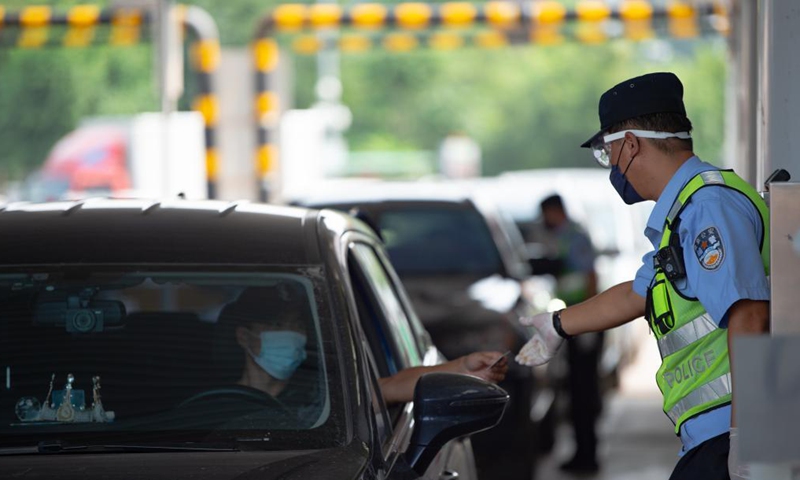
Policemen check information of people entering Beijing at a road checkpoint in Beijing, capital of China, Aug. 6, 2021.Photo:Xinhua
To further reinforce the shield against the COVID-19 pandemic, the city of Beijing has rolled out a range of measures to strengthen the management of personnel returning from regions with relatively high virus transmission rates, including imposing restrictions on their purchase of railway tickets and air services.
People from medium- or high-risk regions or planning to return to Beijing but have a travel history related to these regions will be prevented from buying tickets for air and railway services. In addition, if they choose to drive into the Chinese capital, they will also be persuaded to make a U-turn and leave.
Health codes for people who are still in medium- and high-risk regions will be adjusted to the yellow color, and anyone with a health code that is not green will not be allowed to board planes or trains bound for Beijing.
Presenting a green health code will be a must.
Only when medium- and high-risk regions are downgraded to low-risk or when travelers don't have a travel history in designated risk regions within 14 days, can their yellow codes return to the normal green color.
After gaining a green health code, passengers would also have to present a negative nucleic acid test result within 48 hours of boarding transport to return to Beijing.
Travelers should inform their workplace or residence before their trip, undergo a 14-day health monitoring period and take a nucleic acid test on their day of arrival and another on their seventh day in Beijing.
Also, as part of efforts to shield the capital from the virus, Beijing Daxing International Airport has announced it will suspend flight routes from 15 cities including hotspots of outbreaks such as Nanjing, Yangzhou and Zhangjiajie, according to Wen Wu, the airport's deputy general manager, on Saturday.
Global Times
